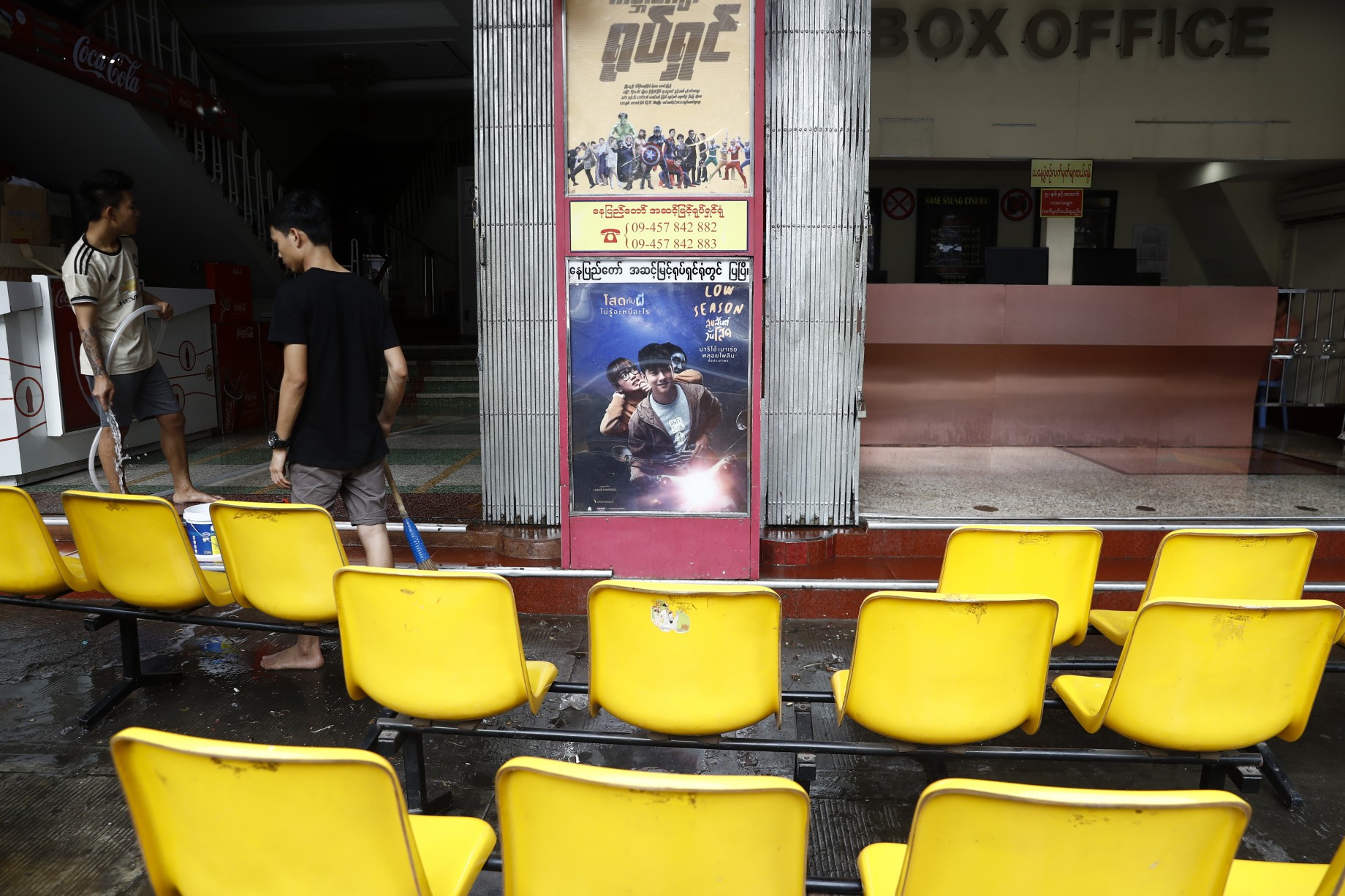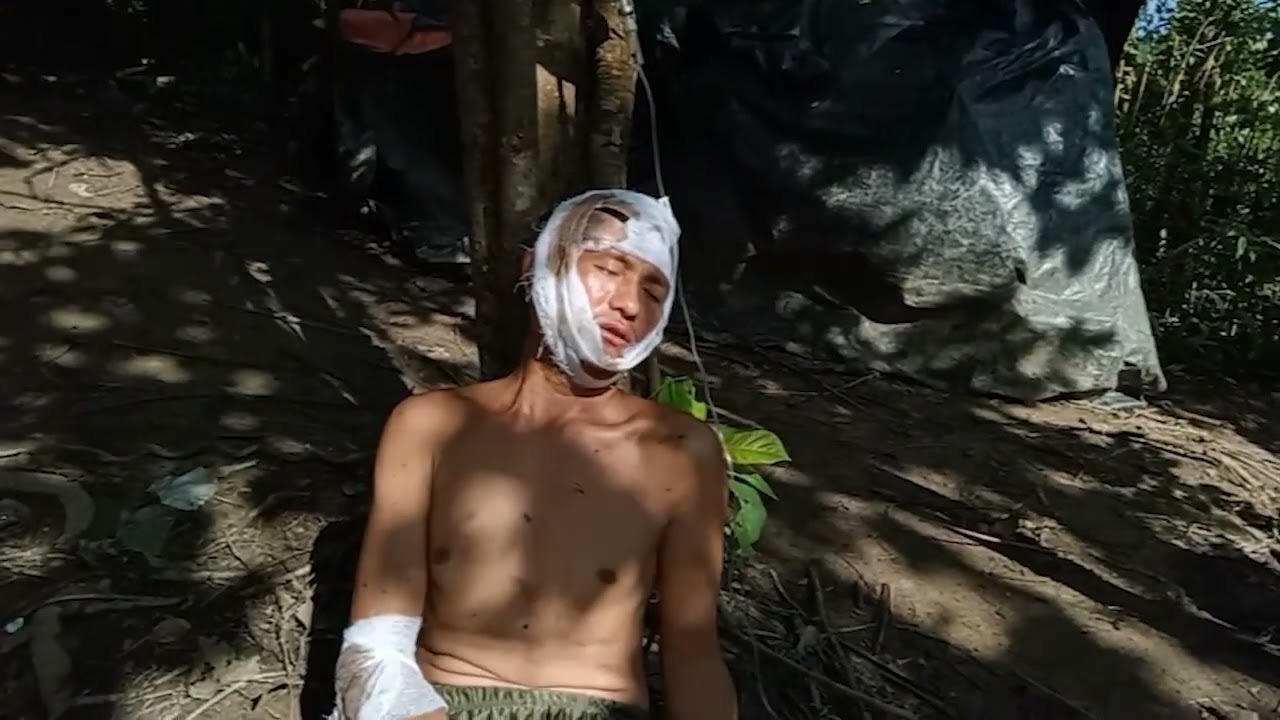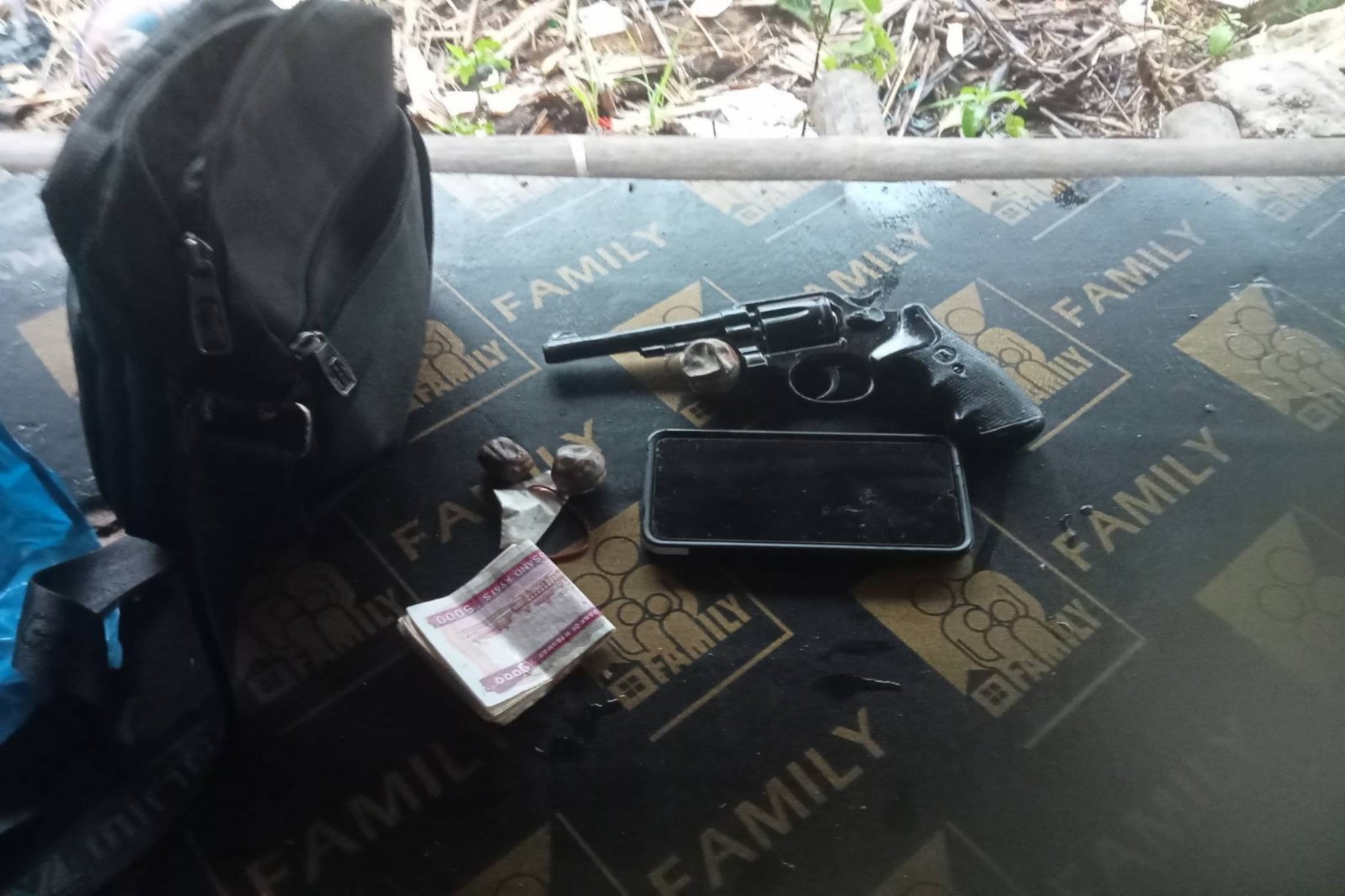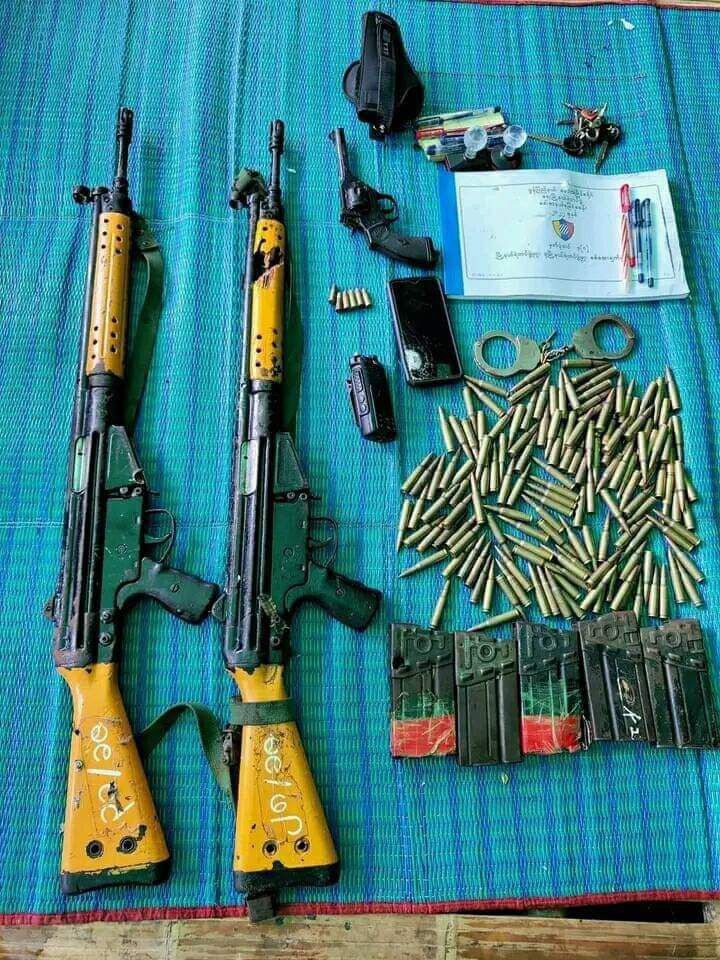
Armed resistance
The Arakan Army (AA) said in a September 28 statement that junta prisoners of war were among the casualties in a military airstrike on the armed group’s territory in Rakhine State’s Maungdaw Township five days earlier. Three Myanmar army jets reportedly fired on an area that included two AA detention facilities for around 30 minutes, killing and injuring an undisclosed number of captured soldiers and members of the Border Guard Police.
The AA claimed to have asked the junta to pick up their wounded troops, but did not receive a response from the military. At least one of the injured individuals died after the AA was unable to provide him with necessary treatment, they said.
More than 150 Myanmar army soldiers have surrendered to the AA since the February 2021 coup, the ethnic armed organisation claimed, adding that some had already been released and transferred to “safe locations.”

***
A coalition made up of members of the anti-junta People’s Defence Force (PDF) and the Karen National Liberation Army (KNLA) seized a base occupied by the military’s Infantry Battalion 283 at a hilltop pagoda in Karen State’s Kyainseikgyi Township on September 28.
Thirteen soldiers, including a deputy battalion commander, were killed in the hour-long attack, according to the Karen National Union, the political wing of KNLA. Resistance forces also reportedly confiscated arms and ammunition from the site. The base in question is located six miles from the town of Payathonzu, or “Three Pagodas Pass,” on the Thai border. The area is under the command of the KNLA’s Brigade 6; its Battalion 16 carried out the attack alongside the resistance column Special Operation Force.

Junta affairs
Television channels, broadcasting companies, and other content providers must seek approval for local and foreign films prior to airing, according to a military council announcement on September 26.
In early September, the military’s attorney general had hinted that the junta would be censoring the publishing industry, but the new restrictions on film were formalised at a recent meeting of the military-controlled information ministry. Its deputy minister, Ye Tint, said that “inappropriate scenes and words” could negatively affect “political, religious and cultural entities and national unity” and that they must be regulated in order to “avert obscenities.”
In an effort by the coup council to control activities around contemporary expression and cultural values, junta chief Min Aung Hlaing and his deputy Soe Win are leading a revival of the Myanmar Traditional Cultural Performing Arts competition, suspended 2016 under the elected National League for Democracy administration. The annual event dates back to 1993 when it was introduced under Than Shwe’s military regime, the State Law and Order Restoration Council.
Prominent model Nang Mwe San was sentenced to six years in prison on September 27 for allegedly violating Section 33a of the 2004 Electronic Transactions Law. By posting video content on adult entertainment sites such as OnlyFans, the junta accused the former medical doctor of “harming Myanmar culture and Myanmar women’s dignity.”
Another well-known model, Thinzar Wint Kyaw, was arrested alongside Nang Mwe San and faces the same charge, but at the time of reporting, had not yet been sentenced.
Urban violence and assassinations
A junta soldier on guard duty at a temple in Yangon’s Pabedan Township was shot and killed on the afternoon of September 29 by unidentified perpetrators, according to local sources. A second soldier was injured in the attack outside the Maha Theindawgyi temple on Mahabandoola Road at 3pm.
The first victim died at the scene, and was reportedly buying betel nut from a local vendor at the time he was targeted.
Junta forces blocked roads along Mahabandoola immediately after the attack, carrying out searches of passersby and allegedly assaulting civilians near the temple, according to a Telegram post by the Rangoon Scout Network, a channel reporting news in Yangon.
***
Two junta-appointed 100-household administrators were assassinated in separate incidents in North and South Dagon, Yangon, on September 29, with an alleged military informant also injured in one of the attacks.
Administrator Zaw Min Tun, and Nwe Ni—who is accused of working with the military-backed Union Solidarity and Development Party (USDP), as well as collaborating with the junta—were shot by two gunmen on the corner of Salween Road and Dawei St in South Dagon. Zaw Min Tun was shot in the chest and died at the scene, while Nwe Ni was shot in the back and survived the incident.
The South Dagon Guerrilla Force claimed responsibility for the assault in an October 3 statement.
Another administrator, Aung Aung, was shot in the chest and killed in North Dagon’s Ward 32 while driving his motorbike through the area at 12:30pm. No further information about the perpetrators involved in the North Dagon shooting was known at the time of reporting.

****
The PDF chapter in Thaton, Mon State claimed to have shot and killed an armed militia leader on September 29. A spokesperson for the resistance group identified the man as Soe Win—also known as Phoe Htaung—a deputy leader within a local military-backed Pyu Saw Htee group.
The PDF reportedly shot him in the head while he was in the Thein Zaw teashop in Day Ba Rein village.
“We had been looking for him for months and he tried to reach into his pocket to take out his gun but we surrounded him and shot him with three guns, so he didn’t stand any chance,” the Thaton PDF spokesperson told Myanmar Now.

Sixty-year-old Soe Win, who was known to be in possession of both a pistol and a rifle, was a former member of the USDP. After the coup, he became second-in-charge of Day Ba Rein’s 10-man militia, formed with the support of Infantry Battalion 24 under the Southeastern Military Command.
At the time of his assassination, the PDF claimed that he was carrying a card showing his membership in the Pyu Saw Htee.
His visit to the teashop was reportedly one of the few instances in which he was not accompanied by two armed bodyguards. He was accused of regularly driving around Thaton, firing his gun, and shouting threats at civilians.
“It was as if the military granted him rule over this area. Whenever there was a conflict in the township, the police and the military never came. Instead, he was the one that dealt with such matters. You could say he was quite an influential person,” the PDF spokesperson explained.
***

Resistance fighters in Mon State’s Ye Township opened fire on a car in which the head of a local police station was a passenger, killing him and two other police officers on September 30.
The car belonged to Khaw Zar town’s head-of-police and was ambushed by the Ye Balu guerrilla group in Kabyar Gyi village, some 18 miles away.
“We got rid of the station head that was recently transferred to Khaw Zar because we assumed that he dared to take the position because he was not afraid of the resistance,” Ye Balu’s leader said. “That’s why we, the Ye Balu group, took care of him. They didn’t even get to fight back.”
The assassins confiscated three rifles, ammunition, and communication devices from the vehicle following the attack.
Ye Balu has called on civil servants working under the junta in Ye to resign. On August 3, the group shot up the immigration office in the township, killing five people, including a staff officer.



